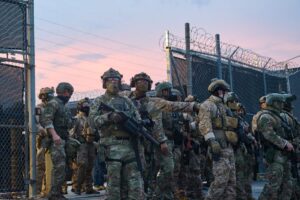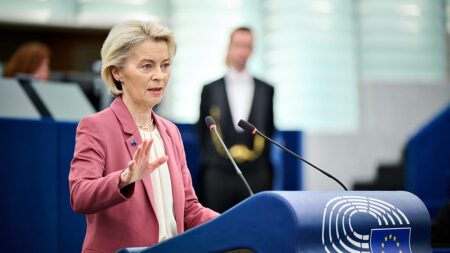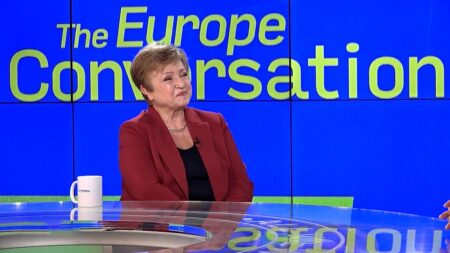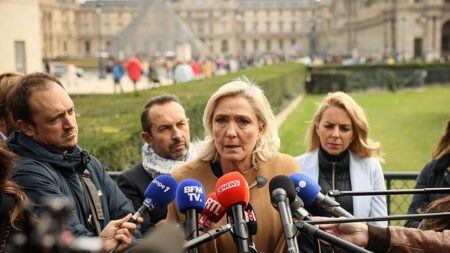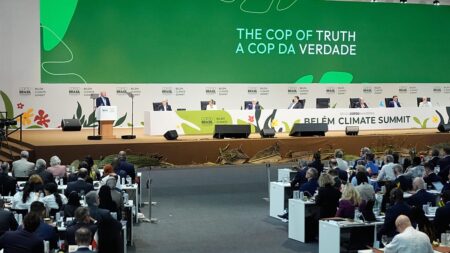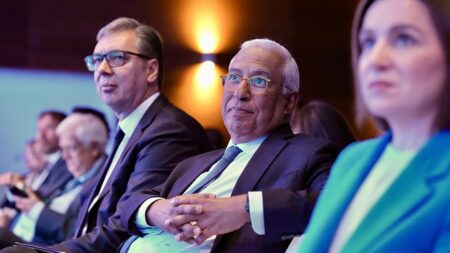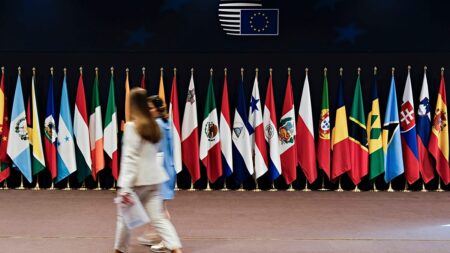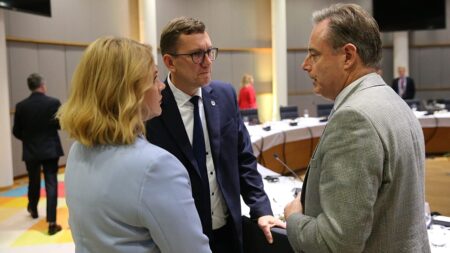The creation of a special tribunal set up to try crimes of aggression against Ukraine is encountering budgetary difficulties, multiple sources familiar with the matter told Euronews, highlighting the challenges for European nations to keep up their financial engagements without the backing of the United States.
The special tribunal was bilaterally agreed by the Council of Europe and the President of Ukraine Volodymyr Zelenskyy in June and will require funding from multiple partners to effectively go ahead.
European donors now worry that the US will continue its policy of disengagement from multilateral institutions, complicating their fundraising efforts.
Although the Council of Europe is officially composed of 46 members, any country that wishes to can take part of the Special Tribunal.
Euronews asked US authorities whether the Trump administration would be interested in joining, without receiving a reply at the time of publication.
With fewer funds coming from Washington for Ukraine, the implementation of the tribunal is itself at peril, three sources familiar with the matter told Euronews on condition of anonymity as the question is still being privately discussed.
Europeans understand they will have to make difficult choices on which projects to fund as the bulk of the financial, humanitarian and military assistance related to Ukraine falls on their shoulders as the US pulls back.
The Council of Europe initially presented a draft budget which includes total operational costs linked to the tribunal of approximately €75 million per year, according to three sources familiar with the matter.
Additional funding for premises and security will further increase the cost. The tribunal would be hosted by The Netherlands.
The EU should provide €10 million as its contribution per year, according to people familiar speaking to Euronews.
Europe faces difficult funding choices
European G7 countries, namely France, Germany, Italy, the United Kingdom are key donors to the Council of Europe. At this stage, it is not clear whether they will participate in the annual funding of the tribunal and they are not actively engaging in the project either, according to four sources familiar with the matter.
Euronews contacted the governments of France, Germany, Italy, the United Kingdom, and the European Commission for comments, without receiving a reply by the time of publication.
“The Council of Europe has no comment to make at this stage. Talks with member states are ongoing”, a spokesperson told Euronews.
The reason behind the Special Tribunal
The Council of Europe, is an intergovernmental organisation based in Strasbourg, which promotes democracy, human rights, and the rule of law across 46 member states.
It includes the European Court of Human Rights and is a separate institution from the European Union.
The creation of the tribunal was specifically asked by Ukrainian officials to complement the work of the International Criminal Court (ICC). The latter cannot prosecute the crime of “waging” a war, but rather war crimes and crimes against humanity.
To begin work, the tribunal must gather a minimum of participating countries.
In the case of Ukraine, the number has not been defined yet, according to one source.
The minimum number is usually 16, although in the case of Ukraine, more countries will have to join, according to experts. Sources suggested it is not just the number, but also the relevance and influence of the participants in international relations.
Read the full article here

